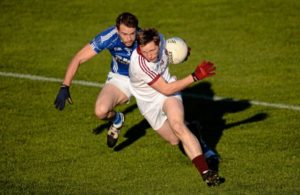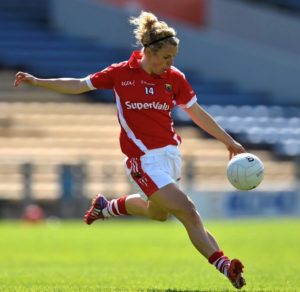So, by now most team’s seasons are over. In terms of club football, we only have the elite teams still in competition so their schedules will be pretty hectic preparing for the All-Ireland stages. University football is up and running, though, and county teams will soon be back in full flow if they aren’t already. For the players that have some down-time over the next couple of months, does that really give you an excuse to milk it and do nothing at all? My thoughts on this is that there is a window. An opportunity for players to work on their skills and to improve on their weaknesses. I have spoken about this before but any player that really has aspirations to improve their game then now is the time. It doesn’t take a lot of effort and you wouldn’t be slogging yourself like February and March pre-season training sessions. 
What I would recommend is two hours per week from now until the end of February dedicated to improving the areas that you feel require some work. That could be your weaker foot, it could be hand-passing, high-catching, improving your kick-pass, working on a free-kick routine, shot-stopping, decision-making in front of goals, communication, movement… the list really is endless but nobody knows more about our weaknesses than ourselves so each player must decide on what it should be.
Goal-setting must be a part of every GAA player’s mindset and I’m pretty confident that most players have the ambition to improve themselves. If the drive within matches the ambition then there should be no excuses for committing to the two hours each week.
On a personal level, at the end of each season I evaluated my own level of performance throughout the previous campaign. Some years I was content and other years I was pretty disappointed but the outcome was always the same, I had to improve on certain aspects of my game. No player is complete. Not Diarmuid Connolly, the Gooch, Lee Keegan, Valerie Mulcahy or even Cora Staunton. Because of my involvement with Armagh, we often found ourselves back training this time of the year so my window of opportunity was there during the pre-season training sessions. Playing county football taught me to set a target for every training session so I knew exactly how I wanted to improve the areas of my game and the advantage that I had at that time was that I was improving on my weaknesses while being put under pressure during the sessions. Sometimes by a fresh face brought into the squad for the first time.
As my main role in the team was to score and because the blanket defence was becoming more and more evident in the game, I had to figure out ways to get free and to afford myself some space to get my shot off or to create space for others. I had to become more creative so I did quite a bit of work on movement. As a full forward, movement is a key aspect of the game but there must be some thought that goes into the movement that is being made. For example, in 2011 we played Down in the first round of the championship and they had been beaten in the All-Ireland final from the previous year. Dan Gordon was a massive player for them and he started full-back on me. Jamie Clarke started on the inside line with me so I concentrated on taking the experienced Gordon to the sideline for the first 10-15 minutes of that match to afford some time and space for Jamie. He settled well into the game and in this period scored 1-1. I timed when I went close to goals and when I stayed clear. You can say that experience played a key role here and I would agree to an extent but the quality of training I dedicated to my own type of movement to improve my game and others around me played a bigger role.
Sometimes, to improve your game and to take it to the next level you have to think outside of the box. Use the next couple of months wisely and don’t be content with where your game is at. Two hours each week is a small sacrifice to pay for endless hours of satisfaction when you see the work paying dividends.

